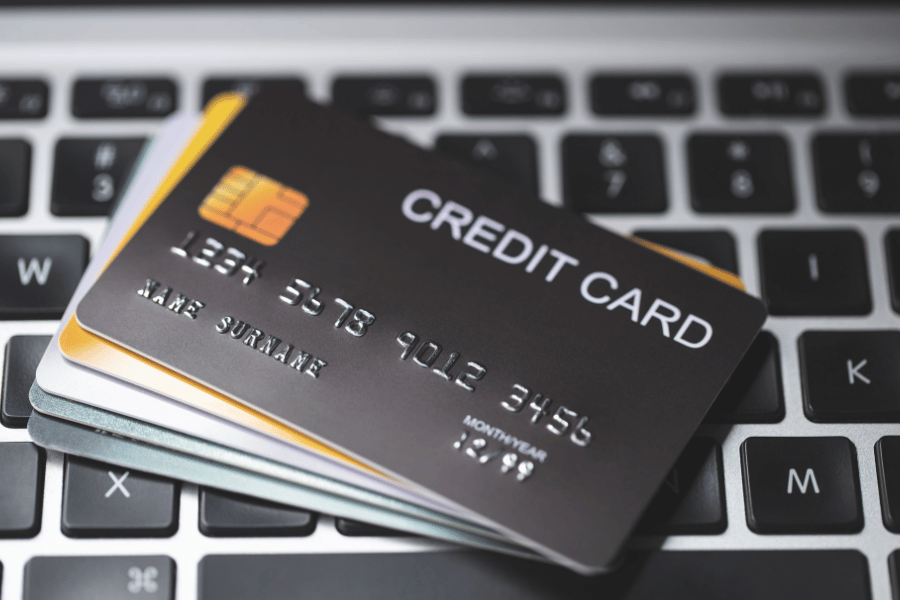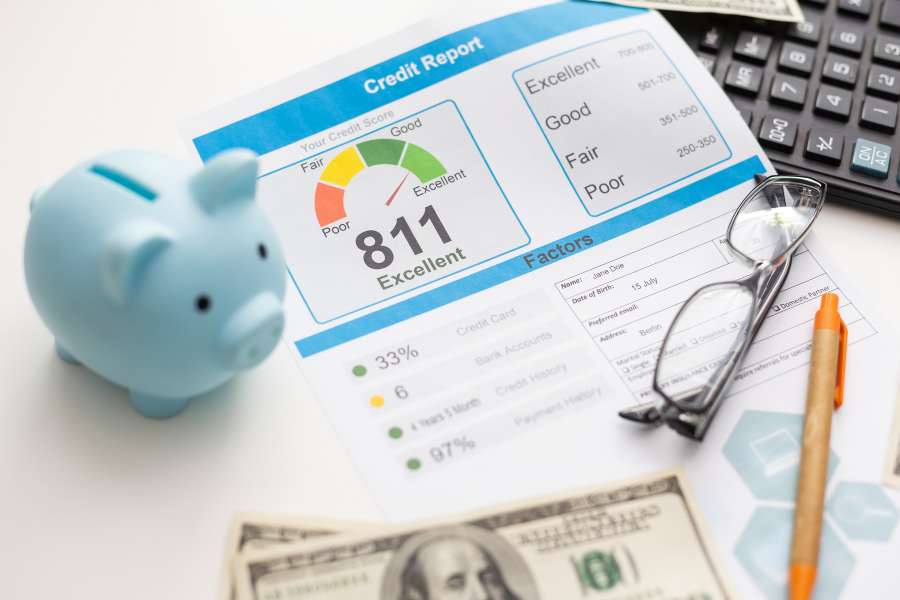7 Ways To Quickly Improve Your Credit Score For a Mortgage
Are you considering buying a house but need to quickly improve your credit score? Here are seven easy ways to quickly improve your credit score for a mortgage.
Credit score requirements vary based on the type of loan you are trying to obtain. It can be difficult to raise your credit score for a mortgage, but not impossible. A couple of simple lifestyle changes can make a huge difference and quickly improve your credit score.
All credit reporting agencies report on several different factors, including payment history, amounts owed, length of credit history, types of credit, and new credit. If you are planning on buying a new home, your credit score may need to be at a certain number in order to qualify for a mortgage.
Fortunately, credit scores can continuously be improved. It may take some time, but with hard work, there are several ways to bring up your credit score as you prepare to apply for a mortgage loan. Here are a couple of the best ways to quickly improve your credit score to buy your dream home.
Keep reading to learn all about how to improve your credit score for a mortgage.
1. Check Your Credit Reports and Scores
Before you start this process, check your credit score and credit report for free with one of the credit reporting agencies, Experian, TransUnion, and Equifax. Your score will give you a better idea of where you stand, and the report will help you see the areas that need the most improvement.
As you look over your reports, keep an eye out for these common issues:
- High credit card balance relative to your credit limit
- Bankruptcies and foreclosures
- Authorized user accounts with high balances
- Past-due accounts
- Charge-offs
- Loans or credit accounts that should not be there
- Payments are incorrectly listed as late or missed.
If you find inaccurate information in your reports, you have the right to dispute that information. If there are no issues on your reports, you should still keep an eye on your credit report and score. Most notably, you'll learn where your main issues are. Now, you will be one step closer to buying the home of your dreams.

2. Pay Every Bill on Time
The simplest way to quickly improve your credit score for a mortgage is to focus on paying every bill on time. Your debt payment history is the most important factor in your credit score. Frequent late payments will make it difficult to get approved for a mortgage.
Sadly, you can't do anything about past late payments, but in the future, you should focus on paying your bills on time. Consider setting up automatic payments to avoid accidentally missing one. However, you should make sure you are financially ready to set up automatic payments.
In order to make payments on time, save up a buffer in your checking account to avoid returned payments. In addition, if you have past-due accounts, pay these first to get caught up as quickly as possible.
If you start to pay every bill on time every month, each time you will add value and strength to your credit score.

3. Limit Big Purchases
Many people use credit cards for everyday spending. However, you should avoid making large purchases on them in the months leading up to your application and during the mortgage process.
A high credit card balance can negatively impact your credit score when it is reported to the credit bureaus. This can happen even if you pay it all off by the due date.
Even if you plan on paying cash, still avoid large purchases leading up to your application. This can limit your ability to save for a down payment. In addition, lenders consider your cash reserves to judge your ability to pay all the housing expenses, including closing costs and emergencies.
Essentially, if you are trying to improve your credit score, you should not be making large, unnecessary purchases. This will make it harder to save up the money and obtain a loan.
4. Avoid Unnecessary Credit Inquiries
Every time you apply for credit, your score can drop three to five points. However, this is temporary; it can still make a difference between an approval or decline. Hard credit inquires stay on your credit report for up to two years.
A hard inquiry is a formal request by an authorized person to view your credit history. This can only be done with your permission. Lenders may use hard inquiries to see your credit report and judge what kind of risk you may pose.
The amount of weight inquiries have on your credit score will depend on the model that is being used. FICO scores are the most widely used credit scores from lenders. In contrast to payment history or credit utilization, hard inquiries do have a smaller impact on credit scores.
Hard inquiries will impact your FICO score calculations for 12 months and stay on your credit reports for two years. If you continue to make payments on time, then you should be able to recover the losses quickly. Try your best to limit how often you apply for new credit. Any small changes like this can make a huge difference in your ability to obtain a mortgage and raise your credit score.

5. Pay Off Your Debts
Your debt-to-income ratio is not included in your credit score. However, it still has a major impact on your creditworthiness if you are applying for a loan. Lenders will want your DTI to be less than 43%, while other loan programs can go as high as 50%. When it comes to housing costs, lenders want your DTI to be 28% or less.
Your debt-to-income ratio includes credit cards, student loans, alimony or child support, and car payments. Once your debts are calculated, lenders include an estimated monthly mortgage payment. If your DTI is not in the right place, you will most likely be denied the loan.
This is why you should be prepared long before applying for a loan by paying off your debts. Start by paying off loans with low balances. Or consider using the debt snowball method. This means making the minimum payment on all of your debts, excluding the lowest balance. You can use these extra payments toward this account; once it is all paid off, you can apply what you were paying to the account with the next lowest balance. Continue doing this until all your debts are paid off.
No matter how you pay off your debts, it should be your top priority when improving your credit score. Not only will it help you obtain a mortgage, but it will put you in a much better position to be able to pay your upcoming housing expenses.
6. Become An Authorized User
Becoming an authorized user of family members' accounts will help tremendously to boost your credit score. This is an easy way for your family to help you obtain a mortgage.
This means that a member of your family could add your name to a credit card that you are authorized to use. As long as they pay the credit card on time every month, this will add much value to your credit score.
Be careful when using the card; you don't want to add more debt to this user's account. Consider not using it at all and simply sitting back to watch your credit score improve.

7. Build Credit Through a Debit Card
While some people improve their credit score by switching to an all-cash budget, this can be risky. You are at risk of losing your money or being robbed. A safer option is switching to using your debit card instead of a credit card.
Debit cards can be used the same as credit cards for large purchases, online transactions, and shopping. But a debit card won't increase your debt.
Most banks won't report your debit card usage to credit bureaus. This means it won't build your credit but if you are also limiting your spending, it can help you save enough money to pay off your previous balances.

Methodology
We used information and data from several different sources, as well as our own data, to determine everything you need to know about improving your credit score for a mortgage. Most of the data was sourced from the following sources:
FAQ: Ways to Quickly Improve Your Credit Score For a Mortgage
Here are some commonly asked questions about improving your credit score for a mortgage.
Can I fix my credit in 6 months to buy a house?
If you prioritize and pay your minimum credit card payments, auto loans, and student loans, then pay your entire credit card balance and other bills, then you should notice your credit score improving. If you continue this, then your score can recover almost fully.
What is the perfect credit score to buy a house?
Many types of mortgages have specific minimum credit score requirements; a conventional loan requires a score of at least 620. However, the ideal is to have a credit score of at least 740.
How fast does a credit score go up after paying off a credit card?
The three nationwide CRAs receive new information from creditors and lenders every 30 to 45 days. This means that if you just paid off a debt, it may take more than a month to see any changes in your score.
How do you wipe your credit history clean?
Unfortunately, it is not possible to wipe your credit history clean. Late payments, collections, and bankruptcies will remain on your credit report for many years. But you can rebuild your credit and quickly improve your score for a mortgage.
What habit lowers your credit score?
Making a late payment will lower your credit score; every late payment shows up on the credit score, and a history of late payments and closed accounts will negatively impact your score for a long time. Once you start making payments on time, you will notice a great improvement in your credit score.
Improve Your Credit Score For a Mortgage - The Bottom Line
As you consider buying a home, remember you promise to pay your lender back a substantial amount of money over a long time. This takes a great deal of trust from the lender, which is why they use your credit score to judge how likely you are to pay the loan.
Depending on the loan you need, there may be different requirements. With that being said, as you improve your credit score, consider the type of loan you are looking to acquire. This will give you a better idea of how much you need to improve and how long it could take.
Once you get your credit score up and are ready to buy a new home, the Triangle is full of many homes where amenities and local favorites will surround your family. Whether you are searching for a single-family home, townhome, condominium, or apartment complex, you are bound to find the best home in Raleigh for you and your family.
Before you buy your next home in the Triangle, feel free to contact one of our helpful real estate specialists, as they are eager to help you find the perfect home. We know that buying a home can be overwhelming, so make sure you are prepared beforehand.


![Mortgage Income Requirements [2024]](https://images.agentloft.com/rr-images/uploads/rr-migrated/blogs/March2024/kK1evJi0zZcE5f2ZBTE0.png)
